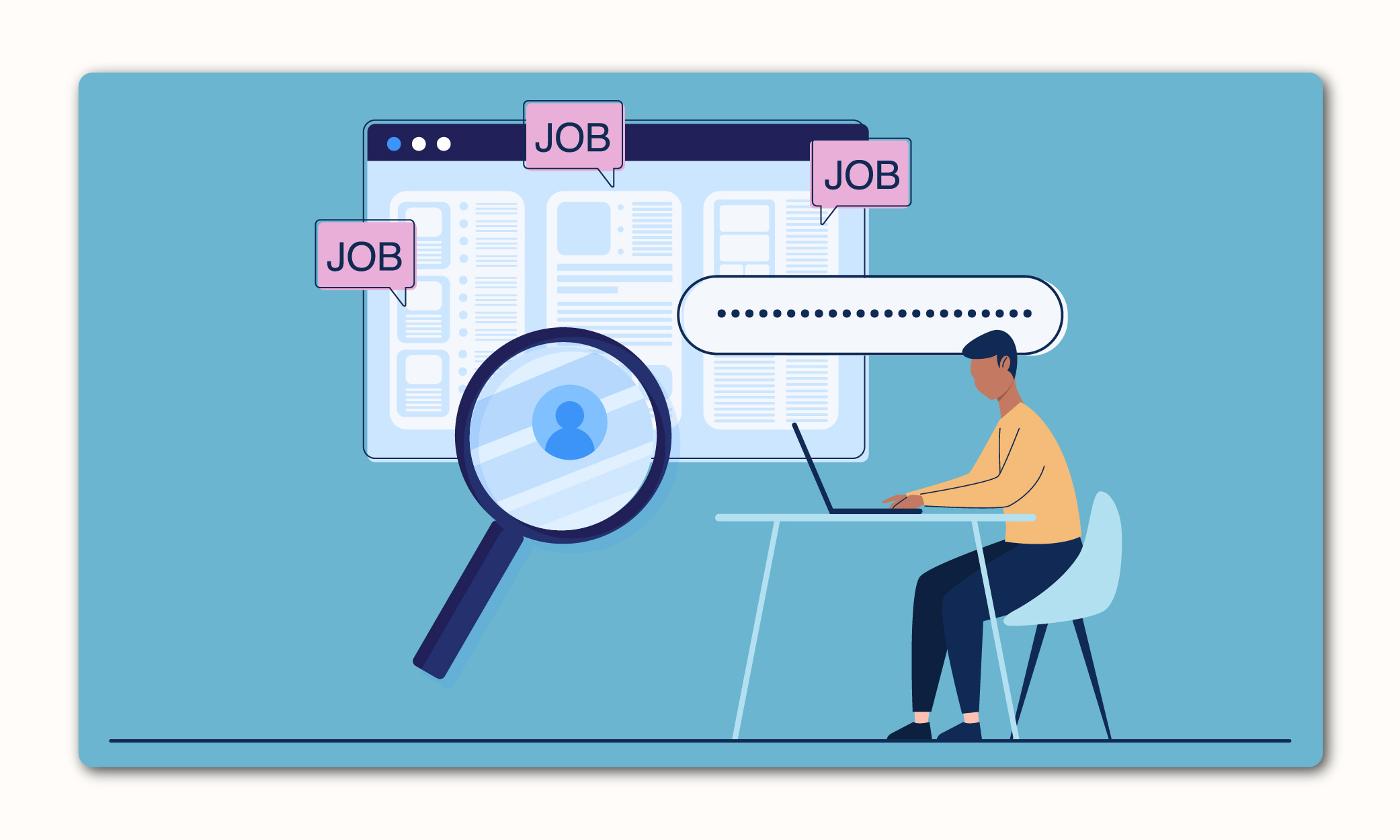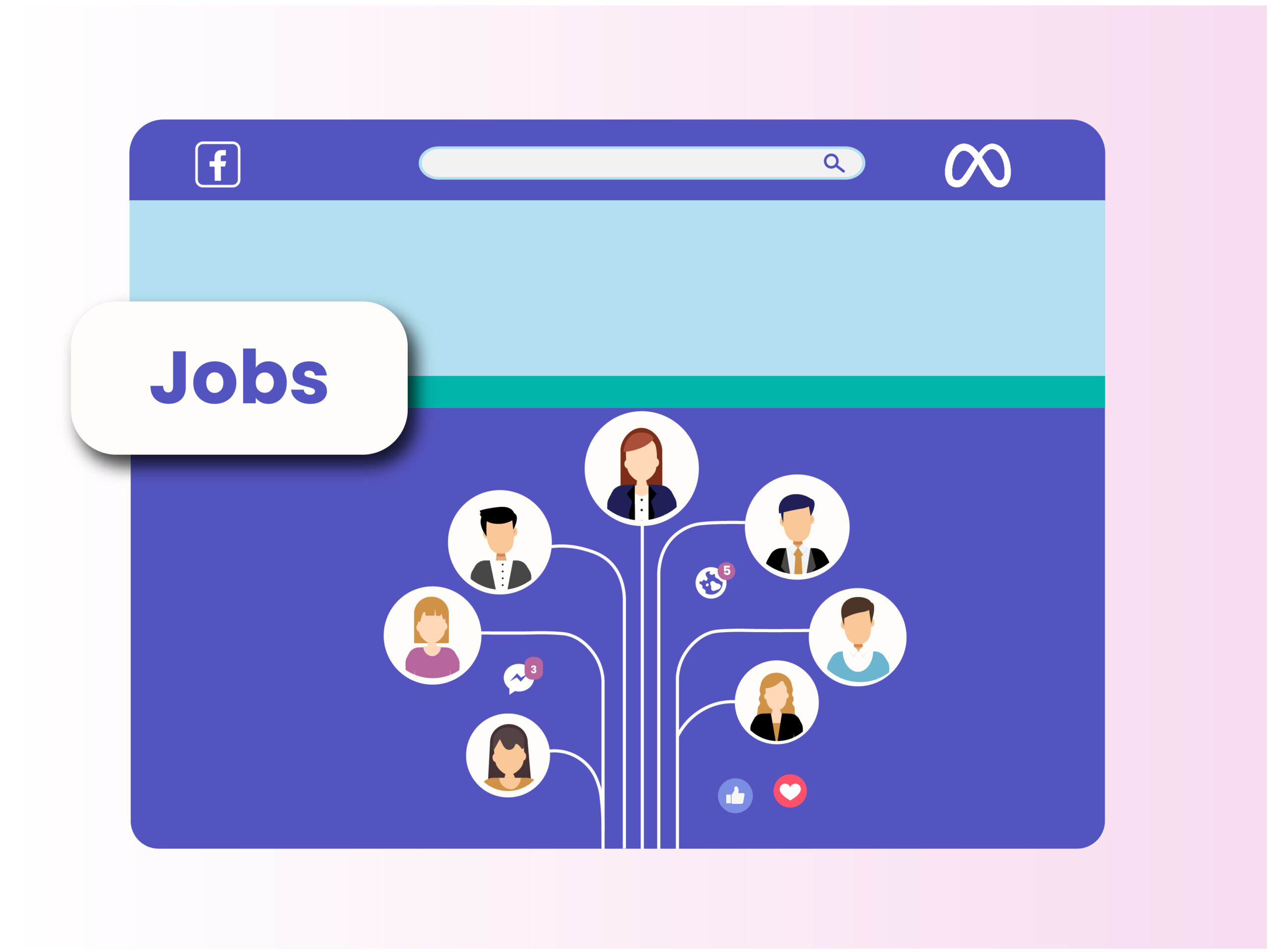Introduction
With 70% of companies hiring new college grads this year, the race for top talent is pretttttty intense. But here’s the catch – only companies with smart, efficient and up-to-date campus recruiting strategies will come out on top.
Here’s your chance to get the lowdown on everything you need to know about campus recruitment. Whether it’s building a robust strategy, using the latest tech, or perfecting your campus events… We’ve got you covered. That means you can focus on working smarter (not harder) to win over the next generation of top-tier and great-fit talent.
What is Campus Recruiting?

Campus recruiting is a strategic recruitment approach where companies actively engage with universities and colleges to attract top student talent for internships and entry-level positions. It’s a more holistic approach than just attending career fairs or hosting certain events once in a while. Campus recruiting involves creating meaningful connections through on-campus events, workshops, networking, and collaboration with student orgs throughout the year.
The goal? To build a pipeline of future talent, ensuring they secure candidates before they hit the open job market.
With the right technology and planning, targeted campus recruiting helps companies streamline the hiring process and align with the needs of a tech-savvy, next-gen workforce.
Engaging Gen Z: Tailoring Your Campus Recruiting Efforts
This generation isn’t swayed by the same tactics that have worked in the past – Gen Z (and Gen Alpha, soon!) is unique, and engaging them means speaking their language, both digitally and socially. They’ve grown up in an era of constant online presence, so being active on social media platforms like Instagram, LinkedIn, and TikTok isn’t just a cool option, but a necessity. Your content needs to stand out, whether it’s through snappy video clips, behind-the-scenes looks at your company culture, or authentic stories that showcase your values.
Another interesting aspect about Gen Z is that they’re all about purpose. Flashy job titles won’t cut it if your company doesn’t stand for something bigger. They want to know they’re contributing to a mission that aligns with their personal values, whether it’s sustainability, diversity, or social impact. Showcase your company’s commitment to these causes in your job descriptions, but in every interaction you have with these potential candidates.
And don’t forget about flexibility! Gen Z craves a work-life balance that blends seamlessly with their personal goals. Highlight opportunities for professional development, growth, and, yes, even hybrid or remote work options, if possible. The more you show that you’re willing to invest in their future, the more likely they’ll be to invest in yours.
In short, to engage Gen Z, your campus recruiting strategy needs to be as dynamic and forward-thinking as they are. Craft your messaging to highlight purpose, values, and flexibility, and you’ll build lasting connections that go beyond the job offer.
Benefits of Campus Recruiting for Employers
Campus recruiting offers employers a unique opportunity to connect with emerging talent before they enter the competitive job market. This proactive approach gives companies a head start in identifying and securing top candidates early. Let’s dive into the benefits in more detail.
Access to fresh talent: Recruiting directly from campuses gives employers access to a large pool of candidates who bring fresh ideas and knowledge. These students are often well-versed in the latest trends, technologies, and industry developments, making them valuable assets. Recent graduates are also adaptable, eager to learn, and open to new ideas. Without preconceived notions, they’re more likely to absorb company culture and processes quickly, making it easier to onboard fresh grads and help them develop in the right roles.
Long-term planning: Building relationships with students early helps businesses establish a long-term talent pipeline. By engaging with students throughout their academic years, companies can nurture promising candidates, creating a steady stream of future hires, which may well mean reduced time-to-fill and recruitment costs over time.
Employer branding: Participating in campus recruiting allows employers to build their brand among students. Through events like career fairs, workshops, or sponsorships, companies can showcase their culture, mission, and opportunities (Gen Z is really keen about these). This boosts your employer brand and helps position you as an attractive workplace for top talent. Shazam!
Cost-effective hiring: Campus recruiting saves costs because it allows employers to reach a large pool of candidates in one go, reducing the need for multiple job postings or external recruitment agencies. By engaging early with students, companies also secure top talent before the broader job market competes for them, likely minimizing hiring costs. Fresh grads often bring suitable skills, requiring less initial training, which also lowers expenses.
High retention rates: Employees hired through campus recruitment often show higher retention rates. Graduates who join organizations early in their careers tend to be more loyal, as they develop a sense of belonging and growth within the company. By investing in their training and development, companies are more likely to foster long-term commitment.
The Structure and Roles of a Campus Recruiting Team
The structure of your campus recruiting team can vary significantly depending on your company’s size and hiring needs. Smaller businesses might rely on just one or two dedicated campus recruiters, while larger organizations often have fully specialized teams, each member focusing on different areas of recruitment. The goal is to ensure that regardless of size, the right talent is attracted efficiently.
Team structures based on company size
Small to mid-sized companies: Here, campus recruiters often juggle multiple responsibilities. They plan events, build relationships with schools, and conduct interviews. These companies tend to focus on a select few schools whose programs closely align with their hiring needs, making the process more targeted.
Large enterprises: For larger companies with bigger hiring demands, the team structure becomes more specialized. You’ll often find region-specific recruiters and university relations teams working in tandem. These organizations also lean heavily on recruitment technologies, like applicant tracking systems (ATS) and AI, to manage large-scale operations—handling massive amounts of candidate data, coordinating events, and maintaining large talent pipelines across numerous campuses.
Key roles within a campus recruiting team
Campus recruiter: These folks are the face of your company on the ground, attending career fairs, workshops, and info sessions. They build excitement around your brand, network with students, and manage the pipeline from the first handshake to interview scheduling.
University relations manager: Focused on the long game, this strategic role ensures your company’s year-round visibility on campuses. University relations managers build partnerships with schools, maintain relationships with key faculty, and select the best academic programs to source top talent.
Recruitment coordinators: The behind-the-scenes taskmasters, recruitment coordinators handle logistics—organizing events, scheduling interviews, and ensuring the overall candidate experience is smooth and efficient.
Hiring managers: While not always part of the core team, hiring managers play a critical role in evaluating candidates, ensuring they meet the technical and cultural standards of the company.
Building the right team structure—whether it’s an all-in-one recruiter for a smaller company or a specialized, tech-driven team for a large enterprise—ensures you can tap into top talent at the right time.
Why You Should Have a Campus Recruiting Strategy and How to Build One
Having a campus recruiting strategy is a must have. But where do you start?
Let’s break it down, step by step. No matter your company size, you’ll know how to create a killer campus recruiting strategy that meets your hiring needs.
Which type of companies should have a campus recruiting strategy?
Campus recruiting isn’t just for large corporations. That’s a common misconception. Budding tech startups, mid-sized firms, and companies in sectors like finance or healthcare have jumped on the campus recruiting bandwagon, too. Any company that needs young, eager talent – especially for roles that benefit from innovation and fresh ideas – should seriously consider developing a campus recruiting strategy.
What is a campus recruiting strategy?
In simple terms, a campus recruiting strategy is your game plan for building long-term relationships with universities to tap into their student talent pool. Let’s be clear: it’s not just about showing up at a career fair once a year. It’s very much about consistent engagement through events (physical and virtual), internships, student organizations, and social media (because it’s Gen Z after all) to make sure you’re on students’ radars when they start job hunting. It’s all about laying the groundwork for a steady pipeline of talent flowing into your company year after year.
Types of campus recruiting strategies
Depending on your company size and hiring needs, strategies will definitely vary.
High-touch: If you’re looking for top-tier talent in specialized fields, you’ll want to engage heavily with select schools. This can include sponsoring events, offering mentorship programs, and even partnering with specific academic departments.
Wide-reach: If you have high-volume needs, consider casting a broader net across various schools through virtual events, general career fairs, and mass communications.
Hybrid: Many companies find success with a mix of both, focusing on specific schools for specialized talent while attending larger job fairs and using tech to reach students from more schools.
How to build a strategy
Know your hiring needs: Before diving into campus recruitment, be very clear about what you’re looking for. Which roles need to be filled? What kind of talent do you need? Are you hiring for specific skills, diverse backgrounds, or cultural fit? Knowing this upfront helps guide your entire strategy.
Identify target campuses: Once you know your hiring needs, you can select universities and colleges that align with your goals. Focus on institutions known for strong programs in your required fields, or schools with diversity initiatives that match your inclusion goals. You might also want to consider geography – especially if you’re recruiting for roles in specific regions.
Engage year-round: Successful companies are visible on campuses throughout the year. This could mean hosting workshops, sponsoring student events, or offering internships. Building long-term relationships with students and faculty helps create a strong pipeline that’s engaged and familiar with your brand before they even graduate!
Use technology: Platforms like ATSs and AI tools help streamline the process by automating candidate sourcing, engagement, and screening. You can also host virtual events, which allow you to reach more students without traveling to multiple campuses.
Don’t forget to make a splash online: Building an online presence is just as important as showing up on campus. Partner with university career centers to post jobs, and take advantage of student forums or community boards to stay engaged digitally. Social media platforms like LinkedIn, Instagram, and TikTok can help extend your reach and connect with students where they spend their time. Collaborating with student organizations or creating your own online communities can help your brand be top-of-mind for students and build relationships beyond traditional recruitment events. We like that!
Budget effectively: Your campus recruiting budget should cover more than just attending fairs. Consider costs related to travel, event sponsorships, branding elements, tools, and even paid internships. The key here is to be meticulous and allocate resources smartly. Smaller companies can make a big impact by focusing on a few strategic activities instead of spreading themselves too thinly across multiple activities and campuses.
Examples of successful campus recruiting efforts
L’Oréal
A great example of effective campus recruiting is the Taste of L’Oréal program. Every year, the company invites around 100 undergrads and grads to New York City for an immersive internship recruitment event. The program gives students a real view of life at L’Oréal through presentations from division presidents, an orientation, and a case study challenge. The cool part is that it’s not just about learning; students also get a shot at in-person interviews for future positions. This mix of exposure, networking, and hands-on experience is a way for companies to build talent pipelines through well-structured campus recruitment initiatives.
Ford
Ford Motor Company took a creative approach to campus recruitment with their on-campus car shows. These “Ford Days” events have been hosted at top universities like MIT, UC Berkeley, and the University of Michigan. Picture a day packed with sleek car displays, casual chats with Ford employees, and inspiring talks from company leaders – all right on campus. It’s an immersive way for students to not just learn about Ford’s job opportunities but also experience the brand in a dynamic and engaging setting, making the recruitment process feel more fun and memorable.
Spotify
Spotify recognized a gender imbalance common in hackathons, where participants are often predominantly male. To put this into perspective – In 2014, the gender split in tech hackathons was 11% female and 89% male. To tackle this, in 2015, they launched their own hackathon, aptly named “Diversify,” aiming for a 50/50 male-to-female ratio. Unlike traditional hackathons that primarily focus on coding, Spotify took it a step further by incorporating workshops and lectures to create a more inclusive and educational environment. Through targeted marketing and word-of-mouth outside typical tech circles, they managed to achieve an impressive 43% female and 57% male participation – a significant step toward gender diversity in tech-focused events.
Common Mistakes to Avoid in Campus Recruiting
While campus recruiting offers tremendous potential, there are some common mistakes that can derail even the best efforts. It’s important for recruiters to be aware of these pitfalls to ensure successful outcomes. Here are a few biggies to avoid.
Lack of preparation and goal setting: One major mistake companies make is approaching campus recruitment without a clear plan or agreed upon objectives. Showing up at universities without a structured strategy or well-defined goals can lead to a lot of missed opportunities. Make sure your campus recruiting team prepares by understanding the talent they need, having clear messaging, and setting measurable targets like the number of hires, engagement, or applications from specific campuses.
Poor engagement with students: Waiting until the final year of a student’s education to engage with them is not ideal as we’ve discussed a few times above. Companies that start building relationships early, are more likely to secure top talent. Engaging students from their junior years allows companies to develop trust and create interest long before they are ready for the job market.
Overlooking employer branding: A weak or unclear employer brand definitely isn’t going to help recruiting efforts. Without a strong, visible presence on campus, students may not really see the value of working with your company. Consistent engagement, tailored messaging, and participation in campus events help strengthen your brand among students, making you a top choice when it’s finally time to start the job search.
Ignoring technology: Relying solely on traditional recruitment methods in 2024 can be a costly mistake. Companies that fail to leverage campus recruitment software, social media, or virtual recruitment tools risk falling behind the competition! The right technology helps streamline processes, improve candidate experiences, and ensures you’re reaching the right talent through the platforms they use most.
Focusing too much on academics: Academic performance is definitely important, but hiring based solely on grades or GPA means overlooking well-rounded candidates. Skills like leadership, communication, and adaptability are equally critical. Campus recruiters should take a holistic view of candidates, considering extracurricular activities, internships, and other experiences that demonstrate valuable, real-world skills. In short, the world is headed towards skill-based hiring.
Missing the follow-up: Failing to follow up with candidates after a campus event or interview is a common mistake that often leads to losing potential hires. Students, especially those who are high-performing, are often approached by multiple companies. It’s important to maintain timely and personalized communication after the first round of intros to show genuine interest and build recall.
The Role of Technology in Campus Recruiting
It’s clear that technology is completely transforming how companies attract fresh talent. It’s no longer about just showing up on campus – it’s about being efficient, precise, and scalable. If you want to stay ahead of the curve – and your competition! – you’ve gotta embrace the latest tech trends. Here’s how different forms of tech can help make your campus recruiting strategy smarter.
Virtual recruiting platforms: With hybrid learning and remote work becoming popular, virtual recruiting has gained a LOT of traction. Companies are using platforms like Zoom, Microsoft Teams, and virtual job fair software to engage with students nationwide. The benefits? A wider talent pool and reduced costs – think travel and on-campus events.
Campus recruiting software: Specialized software solutions streamline the campus recruiting process, from managing candidate data to scheduling interviews. Tools like ATSs and recruitment candidate relationship management (CRM) platforms automate admin tasks, helping recruiters focus on building great relationships and nurturing those great leads.
AI-powered candidate matching: AI is increasingly used to match candidates with roles that align with their skills and career aspirations. Think about using AI-driven tools to assess resumes, rank candidates, and identify the best fits based on criteria beyond GPA, like extracurricular activities, internships, and leadership experience. Quality over quantity, here folks!
Social media and digital marketing: LinkedIn, Instagram, and TikTok are invaluable tools for reaching students and building a strong online employer brand. Recruiters can use targeted ads, video content, and influencer partnerships to engage with potential candidates early and create a lasting impression.
Mobile-first experiences: Having a mobile-friendly application process is non-negotiable. Ensure your career site, job applications, and communication tools are optimized. This not only improves the candidate experience but also increases the chances of converting applicants.
Gamification and AI assessments: Recruiters are turning to gamification and AI-based assessments to evaluate soft skills, cultural fit, and problem-solving abilities. These methods are more engaging for today’s candidates and provide a deeper understanding of their potential beyond traditional interviews.
Incorporating this tech into your campus recruiting strategy will help you connect with students more effectively and improve your process. And honestly, companies that adapt and leverage these tools are a lot more likely to stay ahead of the competition and impress next gen talent.
Campus Recruitment Metrics and ROI
Measuring the success of your campus recruiting efforts isn’t just a nice-to-have – it’s how you know if all that time and effort is really paying off. But you need to track the right metrics to see what’s working and what’s not! Whether you’re a small business or an industry giant, understanding key performance indicators (KPIs) helps you fine-tune your campus recruiting strategy… It’s all about making sure your process isn’t just rolling along but getting smarter and better with every hire.
Key metrics to track
Cost per hire (CPH): This is one of the most important metrics to track. It includes all recruiting-related costs, be it advertising, travel, technology, and event sponsorship, divided by the number of hires you make from campus recruiting efforts.
Time to hire: This tracks how long it takes from the time you first engage with a student to when they accept a job offer. A shorter time-to-hire indicates an efficient recruitment process.
Offer acceptance rate: This metric shows the percentage of offers extended to candidates that are accepted. A low acceptance rate could indicate issues with your offer package or candidate experience.
Quality of hire: This is a longer-term metric, tracking the performance and retention of hires made through campus recruiting. Are these candidates meeting or exceeding job expectations?
Candidate engagement: Track how many students engage with your company at different touchpoints (events, webinars, applications, etc.). Strong engagement often attracts higher-quality candidates.
Diversity of hires: It’s essential to measure how diverse your talent pipeline is. Period. We all know why.
Measuring ROI
To truly get a sense of how valuable your campus recruiting efforts are, you need to tie your KPIs to ROI. Here’s the deal: ROI isn’t just about money saved – it’s about the overall impact on your company’s growth, productivity, and talent pipeline.
Start by tracking key metrics like cost per hire, time to fill, and the retention rate of new grads. These numbers will give you a clear picture of efficiency and quality. For example, if your cost per hire is low and you’re consistently hiring great talent that stays with your company, your campus recruiting strategy is clearly delivering. By connecting those metrics to your overall hiring costs and long-term employee retention, you’ll be able to see the tangible value campus recruiting is bringing to the company.
The idea is simple: if your hiring process is faster, cheaper, and attracts loyal employees, you’ve nailed it. And the more you optimize these KPIs, the better your recruiting machine runs.
Future of Campus Recruiting
The future of campus recruiting is a blend of the old and the new – because, let’s be honest, the world’s had a taste of both, and there’s no going back! Physical campus visits are still important to build personal connections and get face time with candidates, but the convenience of virtual setups is here to stay. Companies now have the power to engage with students beyond career fairs. You can host online events, webinars, and even virtual office tours.
And how could we forget the AI element. AI-powered recruitment tools, which streamline screening, matching, scheduling and keep things running smoothly are going to become the new normal and they’ll also help achieve an abfab hybrid approach.
In short, flexibility is the key to staying ahead and a well-balanced mix of in-person and virtual strategies will be the new norm.
Conclusion
Let’s face it: campus recruiting is no longer about just creating buzz at career fairs or hoping students magically apply to your open positions. It’s about strategy, tech, and year-round engagement. Whether you’re a startup or a larger organization, campus recruiting offers great ROI if done right.
So, what’s next?
Go beyond the campus visit and start thinking long-term. Engage, connect, and build relationships. When you invest in campus recruiting, you’re not just filling today’s roles; you’re shaping the future of your company.
Now that you’ve got the roadmap, it’s time to hit the ground running. The best talent is waiting, and they’re expecting you to show up smarter, stronger, and more prepared than ever!
FAQs
What does an on-campus recruiter do?
An on-campus recruiter represents a company at universities and colleges to find and attract top student talent. Their job involves organizing events like career fairs, info sessions, and workshops, building relationships with students, faculty, and career services. They become the face of the company, providing insights into company culture, answering questions, and helping students understand how their skills could fit into potential roles.
How do campus recruiters work?
Campus recruiters work by establishing connections with universities and colleges to create a talent pipeline. They coordinate on-campus events, speak at workshops, and engage directly with students. Using tools like job boards, social media, and recruitment software, they screen, interview, and evaluate potential candidates. Campus recruiters also work closely with hiring managers to understand their needs and align recruitment strategies with the company’s goals.
What is the goal of campus recruitment?
The primary goal of campus recruitment is to identify and hire fresh talent before they enter the broader job market. Companies aim to build a pipeline of young, skilled candidates who can fill internships or entry-level positions. Through early engagement with students, employers attract candidates whose values and skills align with the company’s mission and also build long-term relationships with them.
How do you build a successful campus recruitment strategy?
A successful campus recruitment strategy starts with identifying the right universities and programs that align with your hiring needs. Building strong relationships with career services and faculty throughout the year is key, along with hosting engaging events like workshops and networking sessions to attract students.
What are the key challenges in campus recruiting?
Campus recruiting challenges include intense competition for top talent, aligning recruitment timelines with academic calendars, and finding candidates who are both skilled and a cultural fit for the company. Plus, attracting students from diverse backgrounds and adapting to the rapidly evolving preferences of Gen Z can make it difficult to stand out.
Looking to streamline your recruitment efforts?
- Try our Job Description Optimizer for quick, effective job descriptions.
- Forecast your ad spend with the CPA Calculator.
- Need help choosing vendors? Explore our RFP Templates for expert guidance.
Also read:




























